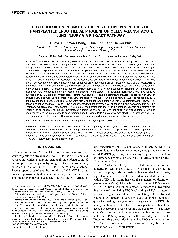摘要
Introduction: Accumulating evidences have indicted the participation and repairing effects of endothelial progenitor cells (EPCs) on acute lung injury (ALI). Researchers have also revealed that erythropoietin (EPO) may exert multiple effects on EPCs including proliferative and adhesive properties. The present study was designed to investigate whether EPO can promote the healing efficiency of transplanted EPCs against ALI and the potential mechanism. Methods: Endothelial progenitor cells were derived from bone marrow mononuclear cells of BALB/c mice. In our in vitro studies, we tested the proproliferative and antiapoptotic effects of EPO on cultured EPCs. In our in vivo studies, we induced BALB/c mice ALI model by intratracheal instillation of lipopolysaccharide and treated with/without intravenous injection of enhanced green fluorescent protein-EPCs harvested from enhanced green fluorescent protein-BALB/c mice. Mice that received EPC transplantation either underwent EPO administration or not. The effects of EPO and EPC treatment on promoting pulmonary endothelial repair, decreasing pulmonary capillary permeability, alleviating pulmonary inflammation, improving gas exchange, and promoting pulmonary vessel angiogenesis were tested. The potential mechanisms that mediate EPO functions on EPC were also investigated. Results: Our studies revealed a significant antiapoptotic property of EPO on cultured EPCs as well as its promotion on EPC proliferation. We also found the severity of ALI was reduced by EPC therapy, and the protective effects of EPCs were highly enhanced when combined with EPO administration. However, all these stimulating effects of EPO on EPCs were consisted with the expression of phospho-Akt and were abrogated by PI3K inhibitors. Conclusions: Transplanted EPCs directly incorporated into the injured pulmonary vessels and maintain the integrity of pulmonary endothelium. Erythropoietin improved the survival and proliferation of transplanted EPCs and recruited them to the injured sites to exert their repairing functions. PI3K/Akt pathway mediated EPO's functions on EPCs. The combination of EPO and EPC treatment may be a promising cell-based therapy for ALI patients.
- 出版日期2014-10
- 单位南京大学
